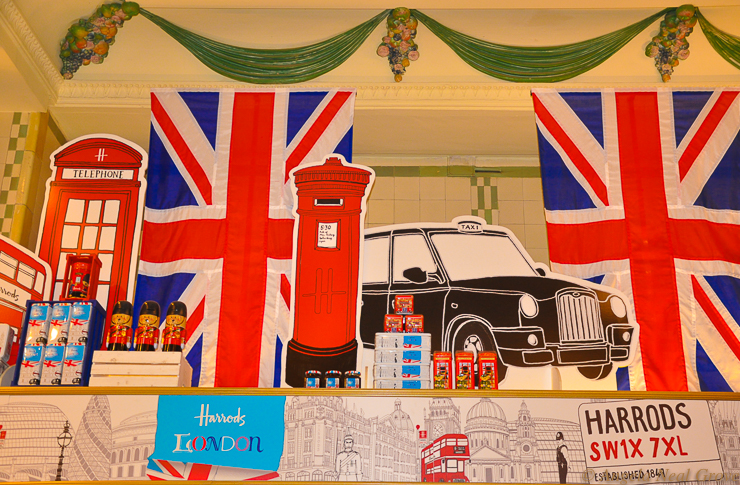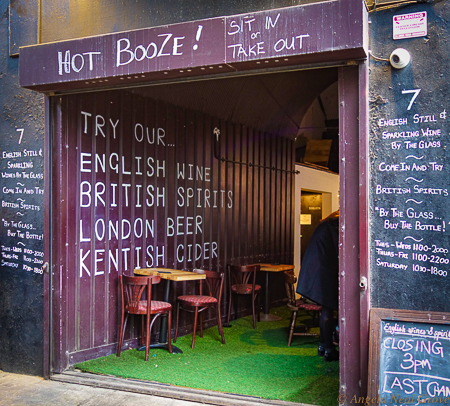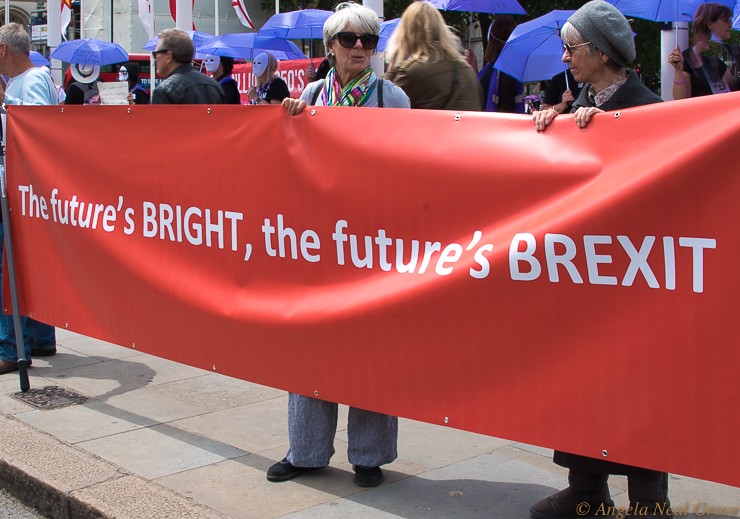
31 January, 2020
At 11pm on Friday, January 31, 2020 the Britain left the EU after 47 years of membership.
Boris Johnson vowed to make Brexit happen when he ran for Prime Minister in December, 2019. He received a landslide vote and followed through on his promise. As a consequence Britain has moved to a new chapter in its history.
A Bright Shining Future?
Some herald this departure as a bright new era. Mr. Johnson said in a televised statement, “For many people this is an astonishing moment of hope, a moment they thought would never come. And there are many of course who feel a sese of anxiety and loss.”
Supporters gathered in Parliament Square, London to celebrate the day when Britian will once again be a “sovereign country” without the onerous constraits of Brussels. Nigel Farage, founder of the Brexit party stated the day was, “A massive victory for the people against the establishment.”
An Unprecedented Blow to Postwar Integration?
For others it was, and is, a moment of deep sadness and concern about the future. Britian’s departure from the EU is the first of a big country from the 27 member union. The bloc looses one of its largest economies and powerful military and diplomatic players. Angela Merkel said, “This is a deep cut for all of us.”
French President Emmanuel Macron stated, “It’s a historic alarm signal that should echo in each of our countries, be understood across Europe and make us think.”
The Way Forward?
With this seismic shift there are serious challenges. At home it is time to heal the rifts and deep divides Brexit has caused. The archbishop of Canterbury, Justin Welby weighed in telling the BBC that Britain “Must be united in a common vision for our country, however great our differences on achieving it.”
Boris Johnson and his conservative party recognize the vote to leave the EU was also a protest vote from communities, mostly in the north of England which, for decades, felt neglected and ignored. He won his vote from these areas on a platform of not only completing Brexit but to “level up” these regions with the prosperous London and south east.
A New Bright Lightly-Regulated Bucaneering Britain?
The days, months and years ahead will be challenging. What goals will be set for how Britain will be in 2025 or 2030? Much has been written about the minefield of trade negotiations which are vital to survival. Robert Tombs, author of “The English and Their History,” commented “There may be some short-term disturbance. But leaving the EU is economically rational. One can only hope his optimism is realized.
In Conclusion
For me Friday, and the departure of Britain from the EU was summed up by a young family member who lives in Amsterdam and who has grown up enjoying a close relationship with Europe. During these past 47 years, with the benefit of free trade and free movement, many young Brits have felt truly European. They have had the ability to study and work within any of the 27 member countries.
Under an image of the Banksy iconic eu image of the European Blue Flag with its 12 gold stars, with one star is being erased by a man on a ladder, he wrote:
“Today I feel saddened by our exit from the EU.” In response a young Dutch friend commented:
“Hate to see Britain go. The European Flag stays the same after today, 12 stars representing a bunch of European countries trying to unite in a divided world. I believe Banksy uses the fallen star as metephor for Britian, falling in pieces on the street below. Sad Story, let’s hope he’s wrong.”
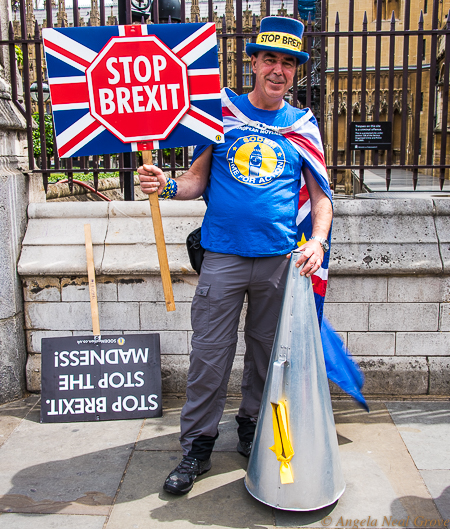
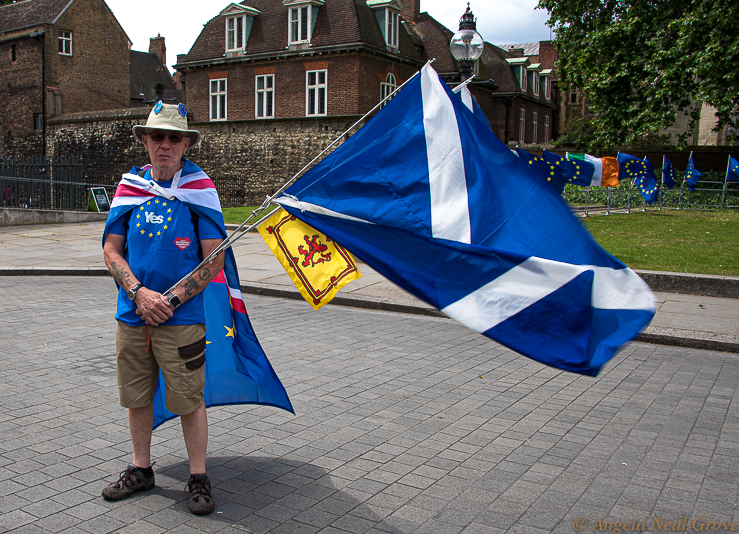
Brexit Fallout, A personal view
This is the third and final piece I shall write on Brexit. It is now history. The first piece was written on 23rd June, 2016 a few days after the seismic Brexit vote on 23rd June, 2016.
The second, written a year ago, 20 January, 2019 was Does Brexit Turmoil Mean Another Referendum? This second piece contained much information and background from the first piece. For those wishing to find out more on the history and inspiration of the Common Market, as it was originally named, I suggest clicking on the live link.
